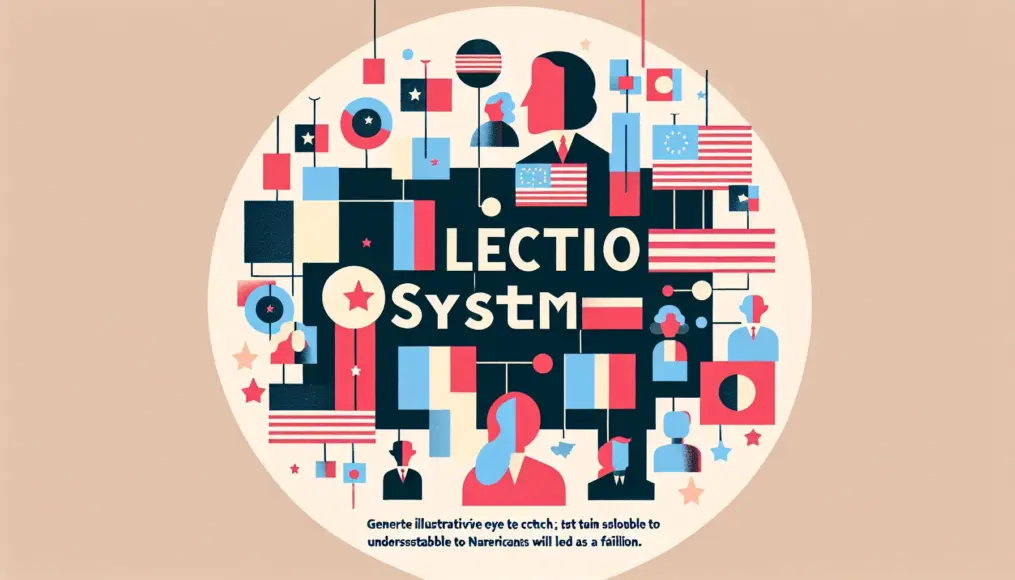For many, running for a seat in the House of Representatives holds a special significance as a first step into the world of politics. With changes in the legal age for candidacy, it’s fascinating to explore how this shift could reshape our future. Let’s delve into how the perspectives and experiences of both the young and the elderly can influence politics.
Age limits are merely numbers. Beneath them lie profound meanings and historical contexts. We’ll examine the qualities and experiences that political leaders should possess, while also considering the characteristics that citizens seek in their leaders. By flipping the script on conventional views about age, we can discover fresh approaches to understanding political leadership.
- Exploring the legal background of age restrictions for House of Representatives candidates
- Considering the unique advantages held by both younger and older generations
- Discussing a new vision of politicians that transcends age
What Are the Age Restrictions for Running for the House of Representatives?
The age restrictions for running for a seat in the House of Representatives is a significant topic in politics. It’s fascinating to consider how these limits affect both younger and older individuals, as well as the broader societal message they convey. By understanding these age restrictions, we may encourage a more diverse political participation. In this section, we’ll first explore the legal background of these age limits, followed by a look back at their historical evolution.
Legal Background of Age Restrictions
The minimum age for running for a seat in the House of Representatives is set by law. Currently, Japanese law requires candidates to be at least 25 years old. This age threshold reflects the importance of having experience and knowledge as a legislator, serving as a standard to enhance credibility in elections.
However, these age restrictions have changed over time. In the past, the minimum age was even higher. By understanding this historical context, we can gain insights into how the current system was shaped.
- The current minimum age to run for the House of Representatives is 25.
- Age restrictions are established by law.
- The rationale behind these limits includes the importance of experience and knowledge.
Historical Changes in Age Restrictions
Looking back at the evolution of age restrictions reveals significant changes in Japan’s political history. For instance, immediately following World War II, the minimum age to run for office was set at 30. Over time, this age limit was gradually lowered to the current requirement of 25, influenced by various social factors.
As movements to encourage political participation among younger individuals gained momentum, the reevaluation of these age limits became more prominent. Understanding this history can help us consider how future reforms and forms of political participation might develop.

If you found this article interesting, you might also enjoy reading “Diving Into Japan’s House Election System: Its History and Impact.” This article offers a deeper look at the historical background of the House election system and its evolution, helping you further understand how the current age restrictions impact the political landscape today.
- After the war, the minimum age for candidates was set at 30.
- Age restrictions have been revised in response to societal changes.
- Initiatives to promote political participation among young people have influenced these changes.
The Advantages of Young Candidates in Politics
How will the political landscape change with an increase in young candidates? Fresh perspectives and innovative ideas can breathe new life into our society. The unique sensibilities and values that younger generations bring have the potential to create different approaches to politics, allowing for a better reflection of the voices of the people. In this section, let’s explore the specific advantages that young candidates offer.
Fresh Perspectives and Ideas
The participation of younger generations in politics is expected to introduce unprecedented viewpoints and ideas. For instance, digital natives are adept at using social media and online platforms for information dissemination and communication. This capability can make political discussions more open and inclusive, facilitating a broader exchange of opinions.
Moreover, younger individuals are particularly attuned to environmental issues and social challenges, equipping them to propose effective solutions. Their fresh outlook encourages flexible approaches that transcend traditional political boundaries, potentially inspiring more people to engage in the political process.
- Young candidates bring new perspectives.
- The characteristics of the digital generation enhance political openness.
- They are highly sensitive to environmental and social issues.
Voting Trends Among Young People
The rise of young candidates might also influence the voting behavior of young voters. When young people find candidates who represent their voices, it’s likely to increase their interest in voting. Historically, young voter turnout has been low, but the presence of relatable candidates could encourage them to become more politically active.
Additionally, communication among peers can deepen their understanding of politics. By running for office themselves, young candidates have increased opportunities to convey the importance of political engagement to their friends and peers, ultimately leading to higher voter turnout.
- Young candidates impact voting behavior.
- Relatable candidates promote political participation.
- Peer interactions provide opportunities for deeper political understanding.
The Impact of Seniors’ Experience
When seniors run for seats in the House of Representatives, their wealth of experience becomes a vital asset. The knowledge and background gained through the years can significantly influence decision-making and problem-solving in politics. Understanding and addressing the diverse needs of society requires the presence of experienced lawmakers. In this section, we will explore the importance of seniors’ political experience and the strategies they can employ to garner support.
The Importance of Political Experience
Seniors possess unique insights and knowledge that they have cultivated throughout their long lives. This experience is essential for grasping the complexities of political issues and making sound judgments. By understanding historical contexts and economic changes, seniors can better assess how current policies might impact society.
Moreover, seniors often have strong connections to their families and local communities, allowing them to reflect a wide range of voices from different generations. This multifaceted perspective can lead to more effective policies and help them serve as trusted representatives of the people.
- Seniors’ political experience is a crucial asset.
- Knowledge of past history enables sound decision-making.
- Connections with family and community provide diverse perspectives.
Strategies for Gaining Support Among Seniors
For seniors running for office, leveraging their experience is key to developing effective strategies. First and foremost, establishing strong communication with the community and building trust is essential. Actively participating in local events and gatherings, and listening directly to the concerns of residents, can be the first step toward earning their support.
Additionally, fostering collaboration with younger generations can be highly effective. By encouraging intergenerational dialogue, seniors can incorporate the opinions of younger individuals while sharing their own knowledge and experiences. This not only deepens mutual understanding but also helps gather support from various age groups.
- Building trust with the community is crucial.
- Actively listening to residents is the first step to gaining support.
- Collaborating with younger generations promotes mutual understanding.
A Contrarian View on Age
Age is often seen as a key criterion for running for a seat in the House of Representatives, but is it really the only factor that matters? In reality, the qualities and abilities of a candidate often take precedence over their age in the political arena. In this section, let’s explore the essential qualities candidates should possess and the expectations of the public from a fresh perspective that transcends age.
What Qualities Matter More Than Age?
When it comes to candidates, age is just one piece of the puzzle. What truly matters is their knowledge, experience, and passion, which play a significant role in the political landscape. Skills like problem-solving and communication are essential, regardless of age. These abilities allow candidates to respect diverse opinions and effectively reflect the voices of the people in their policies.
Moreover, having flexible thinking and fresh ideas is crucial. The ability to adapt to societal changes is indispensable for politics in the future, regardless of a candidate’s age. Unique perspectives and approaches from candidates can lead to the development of better policies.
- Knowledge, experience, and passion are more important than age
- Problem-solving and communication skills are essential
- Flexible thinking and new ideas are necessary in politics
Public Expectations and Candidate Competence
What the public seeks are capable candidates, irrespective of age. In elections, a candidate’s past achievements and vision become significant factors in garnering support. Voters want to choose trustworthy candidates, which means they emphasize abilities and execution over mere age.
Additionally, it’s vital for candidates to articulate their vision clearly and possess concrete plans to realize it. The public demands leaders who can translate words into action, not just rhetoric. Thus, the competence of candidates in meeting public expectations is key to success in politics.
- The public values ability over age
- Past achievements and vision are crucial for gaining support
- Leaders must have the power to take action
Conclusion
We’ve explored the age restrictions for running for the House of Representatives, and it’s become clear that age is just a number. The fresh perspectives and ideas from younger generations, combined with the wealth of experience from older individuals, create the diversity that is essential in politics. It’s crucial to reaffirm that the qualities and capabilities of candidates, rather than their age, are what truly matter in meeting the expectations of the public.
Moving forward, the political landscape needs trustworthy leaders, regardless of their age. Each of us has the power to assess candidates’ abilities and participate in elections to help shape a better future. By engaging with politics and actively exchanging ideas, we can ensure our voices are heard.
- The qualities and capabilities of candidates are more important than their age.
- We live in an era where both young and older individuals can contribute to politics.
- Selecting trustworthy leaders is essential to meet the public’s expectations.
Let’s raise our voices together and think about the future of politics. We look forward to your comments and opinions!


Comment